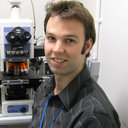Complications associated with recombinant tissue plasminogen activator therapy for acute ischaemic stroke.
Ključne riječi
Sažetak
Intravenous recombinant human tissue plasminogen activator (rtPA, formulated as alteplase) is the primary therapy for acute ischaemic stroke by breaking down a clot of an occluded vessel. There are several randomised controlled trials and observational studies that support the use of rtPA to improve functional outcome following acute ischaemic stroke. However, thrombolytic therapy with rtPA can be associated with a number of complications. Many of the rtPArelated complications result from its thrombolytic action including bleeding (intracerebral and systemic haemorrhage), reperfusion injury with oedema, and angioedema. Other rtPA complications such as reocclusion and secondary embolisation are related to ineffective thrombolysis or redistribution of the lysed clot. In addition to its thrombolytic properties, rtPA can act upon the brain parenchyma leading to seizures and neurotoxicity. Many of these complications have been reported in both pre-clinical experiments and in clinical trials. In animal studies, these complications of rtPA can confound the experimental results achieved, and have to be taken into account in future experiments. In the clinical setting, these complications are not always life-threatening, but can be serious and often lead to prolonged stays in intensive care units, increase the need for medical treatment, lengthen hospital stays, delay rehabilitation and increase morbidity and mortality. Some of these complications could be prevented through adherence to treatment guidelines or at least minimised through early detection and proper management. It is imperative that physicians caring for stroke patients have knowledge of these complications associated with rtPA treatment, and their management.



